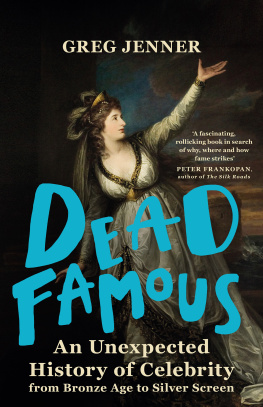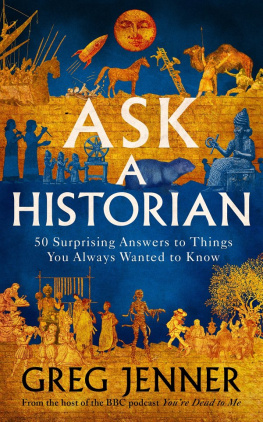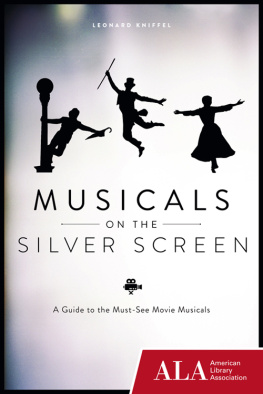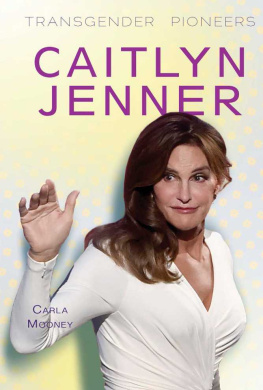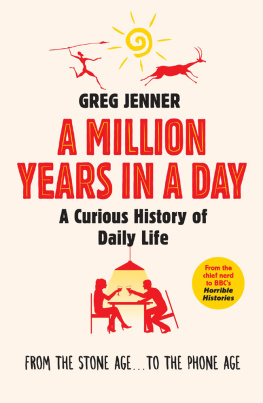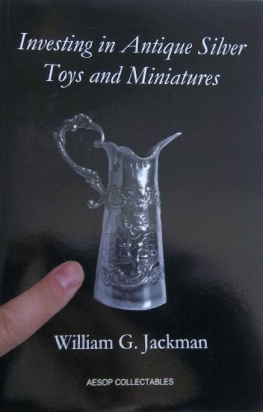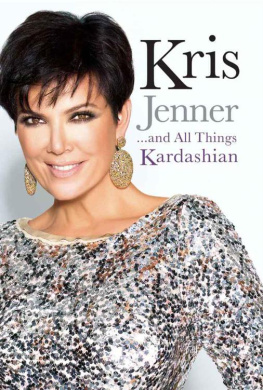Greg Jenner - Dead Famous: An Unexpected History of Celebrity from Bronze Age to Silver Screen
Here you can read online Greg Jenner - Dead Famous: An Unexpected History of Celebrity from Bronze Age to Silver Screen full text of the book (entire story) in english for free. Download pdf and epub, get meaning, cover and reviews about this ebook. publisher: Orion, genre: Non-fiction. Description of the work, (preface) as well as reviews are available. Best literature library LitArk.com created for fans of good reading and offers a wide selection of genres:
Romance novel
Science fiction
Adventure
Detective
Science
History
Home and family
Prose
Art
Politics
Computer
Non-fiction
Religion
Business
Children
Humor
Choose a favorite category and find really read worthwhile books. Enjoy immersion in the world of imagination, feel the emotions of the characters or learn something new for yourself, make an fascinating discovery.
- Book:Dead Famous: An Unexpected History of Celebrity from Bronze Age to Silver Screen
- Author:
- Publisher:Orion
- Genre:
- Rating:3 / 5
- Favourites:Add to favourites
- Your mark:
- 60
- 1
- 2
- 3
- 4
- 5
Dead Famous: An Unexpected History of Celebrity from Bronze Age to Silver Screen: summary, description and annotation
We offer to read an annotation, description, summary or preface (depends on what the author of the book "Dead Famous: An Unexpected History of Celebrity from Bronze Age to Silver Screen" wrote himself). If you haven't found the necessary information about the book — write in the comments, we will try to find it.
Greg Jenner: author's other books
Who wrote Dead Famous: An Unexpected History of Celebrity from Bronze Age to Silver Screen? Find out the surname, the name of the author of the book and a list of all author's works by series.
Dead Famous: An Unexpected History of Celebrity from Bronze Age to Silver Screen — read online for free the complete book (whole text) full work
Below is the text of the book, divided by pages. System saving the place of the last page read, allows you to conveniently read the book "Dead Famous: An Unexpected History of Celebrity from Bronze Age to Silver Screen" online for free, without having to search again every time where you left off. Put a bookmark, and you can go to the page where you finished reading at any time.
Font size:
Interval:
Bookmark:

To our darling daughter, Esm,
Like a superstar diva, you made us wait so long, and arrived in a whirlwind of drama. But it doesnt matter because well always be your biggest fans.
With so much love,
Your proud parents xx

On 11 January 2016, I awoke unusually early. Normally Im an inanimate, bed-hogging lump until at least 9.30 a.m., but this morning was different. After weeks of discussion, and months of preparatory reading, Id finally been approved to start work on my new book (this book!) and I was eager to begin. I bounded downstairs with Tiggerish energy, grabbed my laptop, created a digital folder called DEAD FAMOUS, and prepared myself to care deeply about celebrities for the next few years. And then my phone beeped, and everything suddenly stopped. David Bowie was dead.
The announcement pulverised all other news into insignificance. Twitter exploded; my timeline became a torrent of shocked sadness, confusion, heartfelt personal anecdotes, hastily written newspaper obituaries, trite reactions from politicians who thought they should be seen to join in, and an avalanche of fans screaming What do you mean hes dead?!? His new album came out THREE DAYS AGO! That last one was the real kicker. Blackstar had been released on Bowies sixty-ninth birthday and was so new that even some diehard fans hadnt heard it yet. Bowie seemed full of life. Indeed, the opening line of Pitchforks album review still makes me gulp: David Bowie has died many deaths, yet he is still with us. He is popular musics ultimate Lazarus Seventy-two hours later, Bowies treacherous tumours made a mockery of that headline.
Where other artists might have cherished their rapturous swansong the farewell performance, the last great interview, the thumbs up from the hospital bed Bowie allowed fans and critics to judge his final songs on their own merit, without the rosy hue of hagiography. What do you reckon, any good? he seemed to ask us, courageously inviting the critics claws that wouldve surely stayed sheathed for a dying man. It was an astonishing exit from a man famed for astonishing exits. In the summer of 1973, he killed off his Ziggy Stardust alter ego live on stage with a farewell rendition of RocknRoll Suicide. Fans were dumbstruck; but so were his bandmates. Hed kept it a secret from everyone. In 2016, Bowie had repeated the trick, stage-managing his own demise so that none of us realised it was even happening. The shock wrong-footed both the public and the media, causing a cascade of mourning that didnt just lament the passing of a hero, but also the scary instability of mortality itself.
On that chilly January morning, I didnt succumb to tears and seismic emotions because I wasnt a huge Bowie aficionado. Not properly, anyway. I loved the hits Life on Mars, Space Oddity, Heroes, Ashes to Ashes but Id missed entire decades of his output. Every time I saw him on TV, or spotted him making ironic movie cameos, I thought: Hey, thats David Bowie! Hes so interesting, and clever, and cool, I should probably learn everything I can about him, but then Id get distracted. Nevertheless, when the news broke, I assumed I knew enough to appreciate what the world had just lost. Turns out I was bell-clangingly wrong.
Id completely underestimated his impact. Bowie was like a moon; beautiful, shadowy, unknowable, ever-changing, and yet with a vast gravity that had pulled the tides of popular culture back and forth; hed been both pop superstar and avant-garde intellectual, weirdo jazz crooner and fist-pumping Glastonbury headliner. Hed starred in iconic movies and made a couple of the greatest rock albums of the twentieth century. And this only started to dawn on me when I switched on the radio and heard my favourite music broadcaster, Lauren Laverne, convert her three-hour BBC show into a Bowie tribute. She didnt just play the hits; Laverne instead invited an audio community to an unplanned funeral, one in which they would be giving the eulogy.
Throughout the programme, fans phoned in requesting rare songs, and shared how David Bowies life had contributed to their own. It was a joyous chorus of gratitude: stories of teenage crushes, of exhilarating live gigs, of first kisses, of amusing encounters with the great man himself, of clarifying moments of sexual awareness, of lyrical inspiration in hard times, of fun, of glamour, of art, of rocknroll, of life. Bowies existence had changed these people, and they were profoundly grateful.
But he wasnt just any old singer; people thought hed possessed exceptional qualities: unerring charisma, prodigious creativity, bewitching beauty, and the endlessly protean ability to transform himself. He was ethereal. Someone on Twitter joked he hadnt died, hed simply returned to his home planet, as if he were some messianic alien rather than just a gender-fluid musical polymath with a fondness for the saxophone. The newspaper obituaries offered the human flipside. They spoke of his kindness, his taste in books, how uproariously funny he could be, and how quaintly British he was with that sort of modulating mockney accent. The wave of public affection was so deep, I realised that Id undervalued the emotional power of fame. David Bowie wasnt just a dead celebrity. For many, this was a personal bereavement.
Are you rolling your eyes? Fair enough, for I too was once a cynic. In 1997, when Princess Diana died, I was just about to turn fifteen, and was at the peak of adolescent arrogance. I gazed upon the national weeping and screwed up my face into a curmudgeonly harrumph. Sure, its very sad her kids will grow up without a mum, but why is everyone shrieking in the streets? Theyve never even met her! In truth, this was teenage bravado, because I was shocked. On that fateful day, my family was staying with my French grandmother, only a few miles from the crash site, and, when shed woken us up with the tragic news, wed simply refused to believe her. Princess Diana cant die, dont be ridiculous! Silly old Mamie is going batty!
Our stubborn denial was a micro-encapsulation of how celebrities function as psychic breeze blocks; theyre part of the sturdy foundations upon which we build our identities. Those clickbait articles lurking at the bottom of the internet are perfect examples of weaponised celebrity nostalgia: Remember that cute kid from the show you loved in 1998? You wont believe what she looks like now CLICK HERE! These articles get billions of hits from around the world. We cant help it. Celebrities are our companions through life if theyre ageing and dying, then so are we.
Britains Diana-shaped grief spiral was a national howl of many varied voices shed been a unique entity; a celebrity-royal hybrid who became an avatar for deceased mums, dads, children, pets, friends, and whatever trauma had been bottled up and buried deep. She was a lightning rod for personal sadness. But Diana wasnt just a hollow proxy without her own qualities. Much like Bowie, she too had shown rare charisma while also being accessibly normal; shed been the so-called Peoples Princess. We all knew her, wed watched her wedding day, seen her raise two children, followed her life in the tabloids, admired her fashion sense, surveilled her through a spectacular divorce, and speculated about her new lovers. As Eddie Izzard later noted in a stand-up routine, her death was akin to your favourite TV show killing off its lead characters at 3 a.m. on a Monday What?! Has it finished now? I was watching that! Princess Diana was a human box-set wed been bingeing on for years. And suddenly shed been cancelled.
Font size:
Interval:
Bookmark:
Similar books «Dead Famous: An Unexpected History of Celebrity from Bronze Age to Silver Screen»
Look at similar books to Dead Famous: An Unexpected History of Celebrity from Bronze Age to Silver Screen. We have selected literature similar in name and meaning in the hope of providing readers with more options to find new, interesting, not yet read works.
Discussion, reviews of the book Dead Famous: An Unexpected History of Celebrity from Bronze Age to Silver Screen and just readers' own opinions. Leave your comments, write what you think about the work, its meaning or the main characters. Specify what exactly you liked and what you didn't like, and why you think so.

